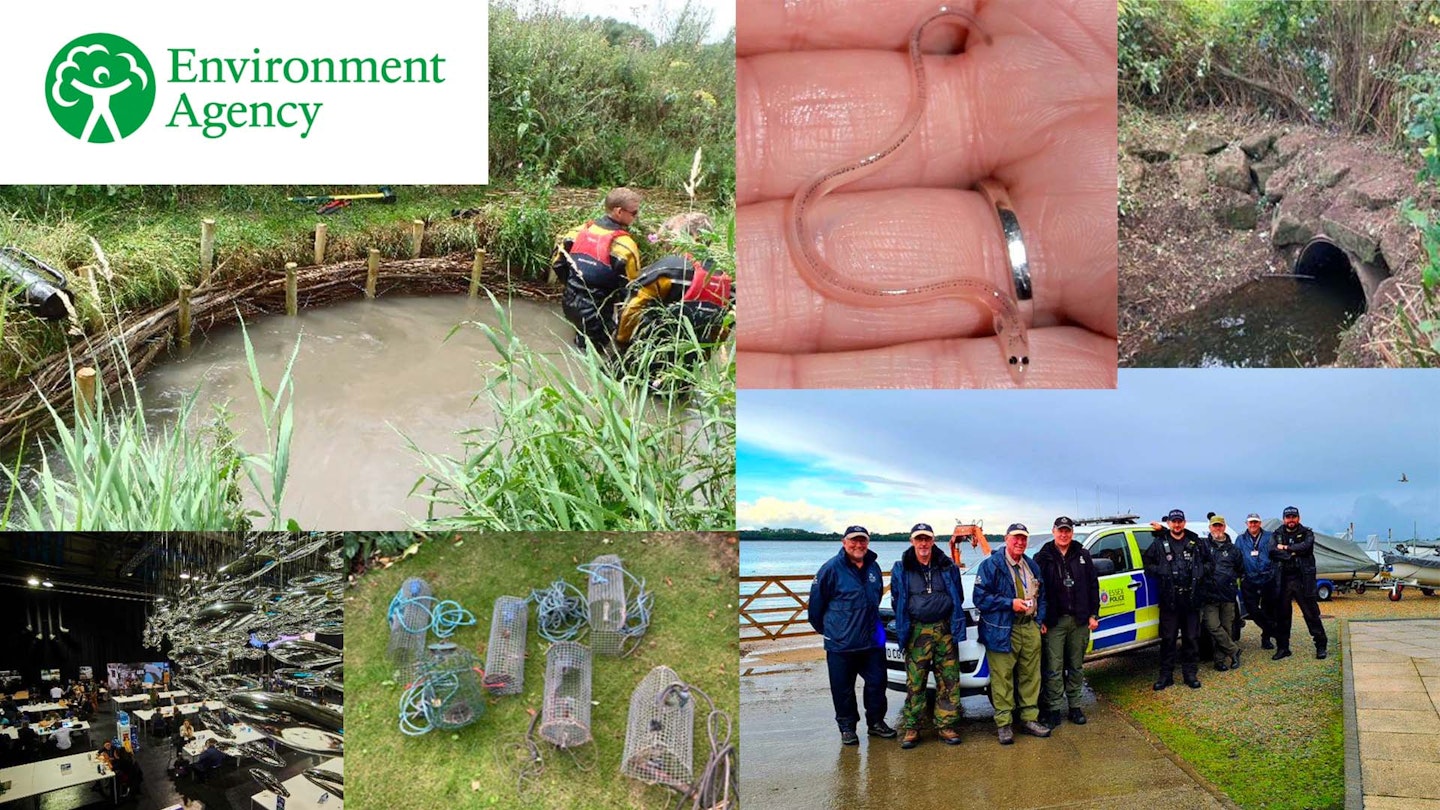All of the updates below are funded by rod licence income and are part of wider EA work taking place across the country.
Gloucester man fined 11,000 for fishing eels illegally
A Gloucestershire fisherman who lured valuable elvers into his illegally placed fishing net instead caught a 5-figure legal bill.
Phillip Croker, of The Oval, Gloucester, was caught fishing for elvers – baby eels – at Oldbury tidal sluice, on the tidal River Severn, on 14 March 2019.
Anyone fishing for eels on the Severn needs Environment Agency authorisation and will receive a tag that must be attached to their net to show they are fishing legally.
Mr Croker was ordered to pay the Environment Agency costs of 10,425.40, a 300 fine and a 30 victim surcharge. Croker’s fishing net was also seized and destroyed.
Richard Dearnley, Fisheries Enforcement Officer for the Environment Agency, said: “Elver authorisations come with strict conditions aimed at preventing their over-exploitation and to encourage a fair and sustainable fishery.
“There has been a huge decline in eel stocks in recent years and their illegal exploitation undermines the Environment Agency and Sustainable Eel Group’s efforts to conserve and improve eel stocks.
“This offence was financially motivated to increase the likelihood of higher catches of elvers due to an unfair advantage. “This case shows we pursue offenders through the courts and will not hesitate to take enforcement action where people flout the rules.”
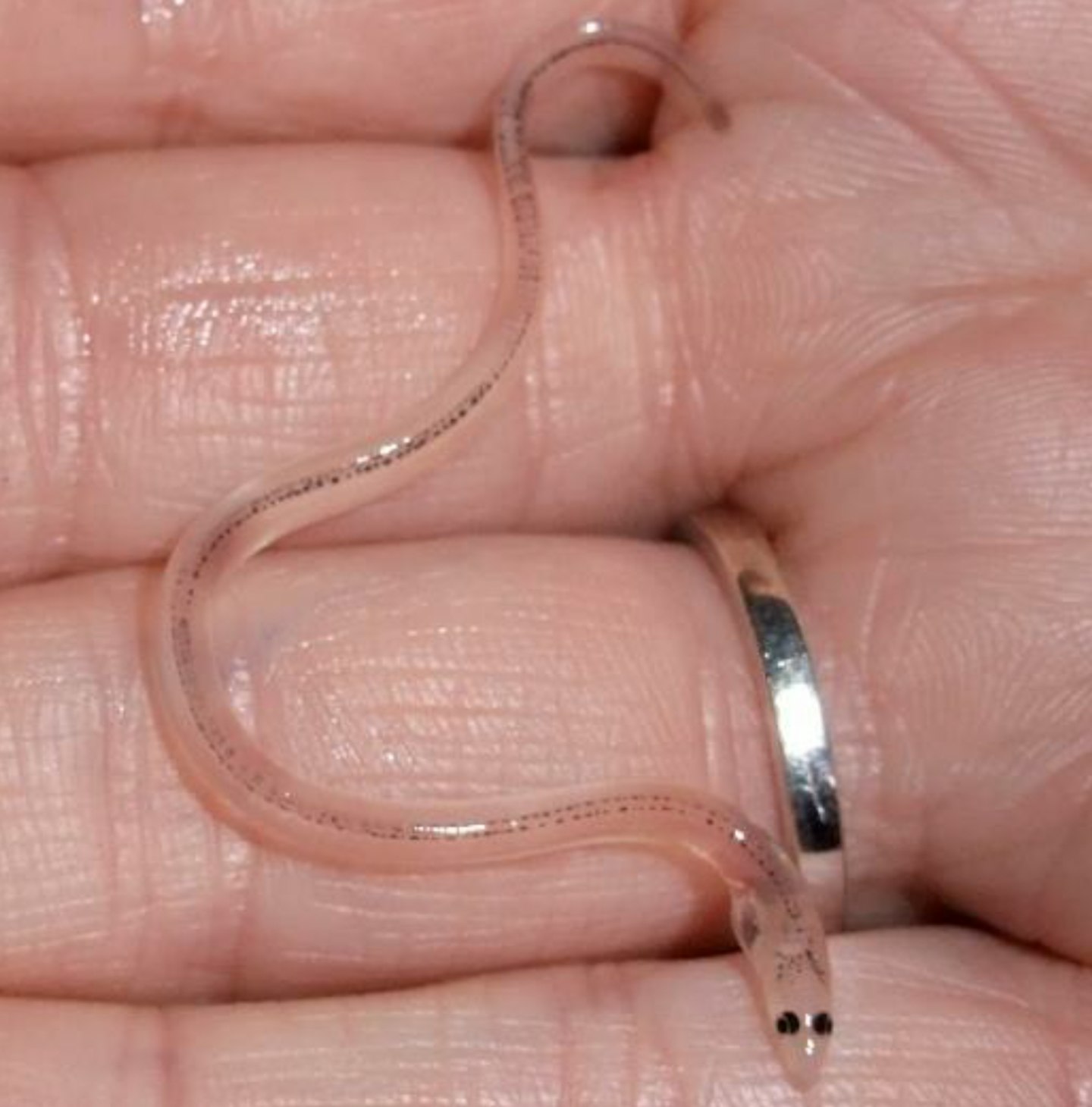
Deadly fish traps found in the River Skerne
Officers from the Environment Agency and Darlington Borough Council are targeting and putting a stop to illegal fishing activity on the River Skerne.
Enforcement officers have seized more than 20 illegal fish traps and other equipment in the past three months in the North East, including several in Darlington borough. The work is part of the Environment Agency’s North East crackdown called Operation Creel that aims to protect species such as the, white clawed crayfish and European eel that are threatened by a range of factors, including habitat loss and our changing climate
Members of the public have reported illegal practices including crayfish trapping and fish theft, particularly in the River Skerne and nearby ponds, adding to other sources of intelligence and helping authorities to track the culprits.
Traps can prove deadly for river mammals including otters who may get stuck and drown after following prey.
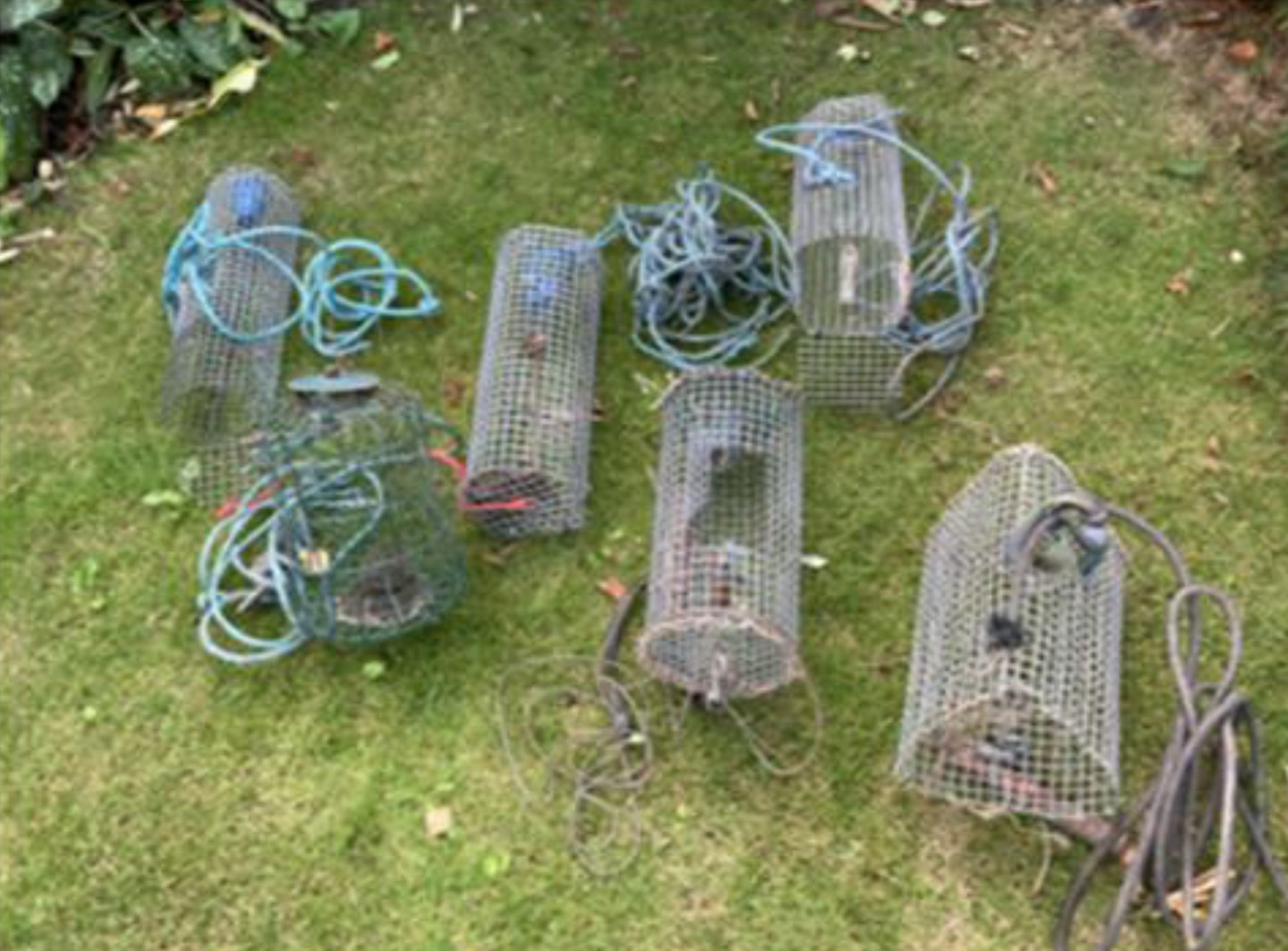
Dovecliff weir removal enables fish to move freely
A 2.5m Environment Agency project to remove the weir on the River Dove was recently completed, following 24 months of works.
For the first time in almost 900 years, over 550km of watercourse has been opened up for the free passage of fish of the River Dove and its tributaries. Dovecliff weir was the first barrier to fish migration along the River Dove and, in combination with other completed fish passage projects, its removal now enables all fish species to access their spawning grounds.
Along with improving passage for fish, removing the weir benefits water quality, public safety and welfare, wider floodplain biodiversity and boosts the local economy by attracting more visits by anglers to the area.
Paul Herickx, Project Executive at the Environment Agency said:
“Whilst there have been significant construction challenges to safely remove the structure, seeing the River Dove flow freely for the first time in almost a millennia and knowing that its natural processes are now rebalancing makes all the team’s efforts worthwhile.”
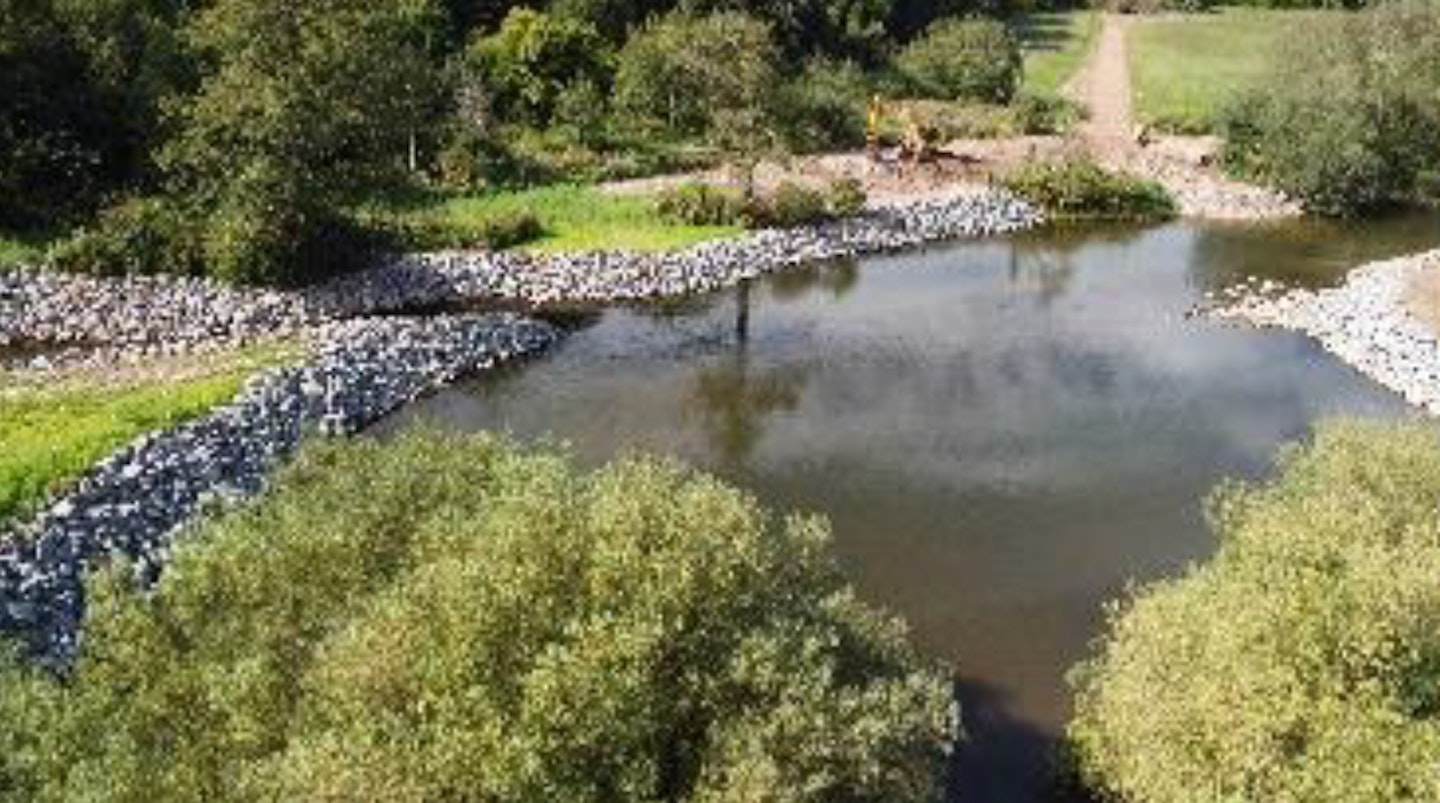
Vital but rapidly declining salmon species given tribute at COP26
Salmon were centre stage at COP26 in November as visitors saw the Salmon School, an art installation of 300 hand-blown glass salmon.
This compelling visual tribute was created by the artist Joseph Rossano with Missing Salmon Alliance a key partner.
This display emphasised the plight of different salmon species around the world, including our own Atlantic salmon, communicating that salmon are an indicator of the health and resilience of oceans and rivers.
Wild Atlantic salmon populations are declining at a rapid rate, with stocks falling by over 80% in the last 25 years. The Environment Agency works closely with the Missing Salmon Alliance to better understand factors limiting salmon species.
The EA also continues to support vulnerable salmon stocks in England by creating fish passes to improve access to breeding grounds, regulating fisheries and cracking down on illegal fishing.
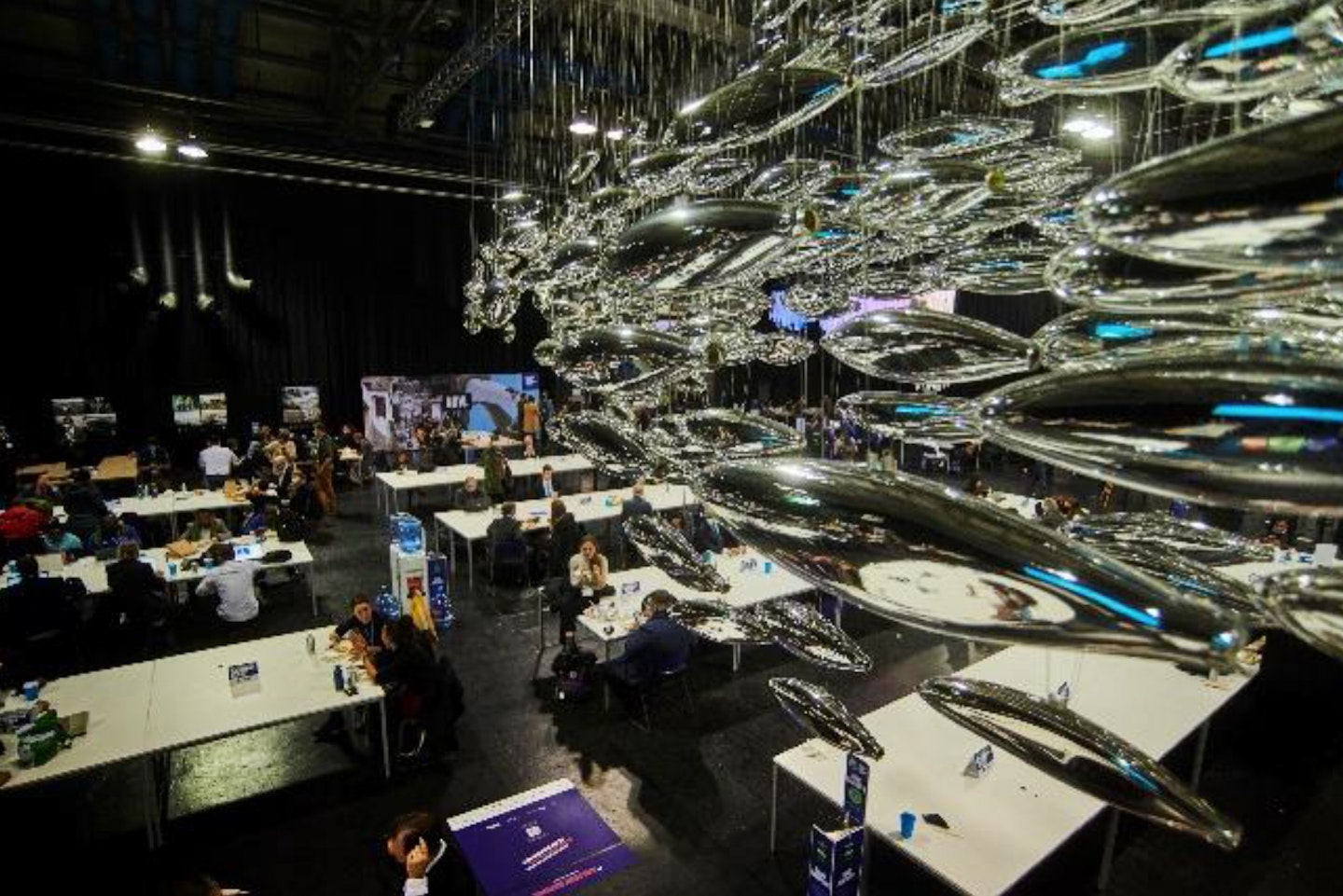
Thermal imagery technology improves fisheries enforcement
Fisheries enforcement officers in East Anglia have been using thermal imaging cameras to detect those fishing illegally.
Officers in Cambridgeshire, Bedfordshire, Buckinghamshire, Suffolk, Norfolk and Hertfordshire will use this new technology to crack down on illegal activity.
The thermal cameras detect heat signatures which will help staff during patrols when visibility is limited due to lack of light. Illegal fishing usually takes place early in the morning which makes it more difficult to detect. But this kit means there is nowhere to hide.
EA works in partnership to get Army Cadets into fishing
Encouraging young people into angling is an essential part of ensuring the future growth of the sport. The Environment Agency, in collaboration with ICARP, Angling Trust, Crafty Catcher, Total Carp and Army Cadets, has worked together to get a group of Army Cadets into fishing.
The Environment Agency provides funding to the ICARP programme and bursaries to train coaches, creating more opportunities for young people to get involved.
A year of enforcement action
It’s been a challenging year for everyone, including our enforcement teams. Despite this, Environment Agency officers, often in collaboration with the Voluntary Bailiff Service (VBS) and the police, have continued to patrol the riverbank to prevent illegal fishing and poaching.
Early in the spring, officers enforced the close season for salmon and sea trout fishing to protect spawning fish which is vital for the health of our fisheries.
This summer, enhanced enforcement activity took place through Operation LUNGFISH. Officers across the country used the latest technology and acted on intelligence from the public to target those who feel that they can get away with fishing illegally.
Prosecutions of illegal fishers continued to take place – recently a Gloucestershire man was ordered to pay the Environment Agency costs of 10,425.40, a 300 fine and a 30 victim surcharge for illegally fishing juvenile elvers.
As we head into 2022, fisheries enforcement will continue to prevent illegal fishing and protect our fisheries from harm. The public have been instrumental in reporting fisheries crimes. If you suspect any illegal activity, please report it to the hotline number 0800 80 70 60.
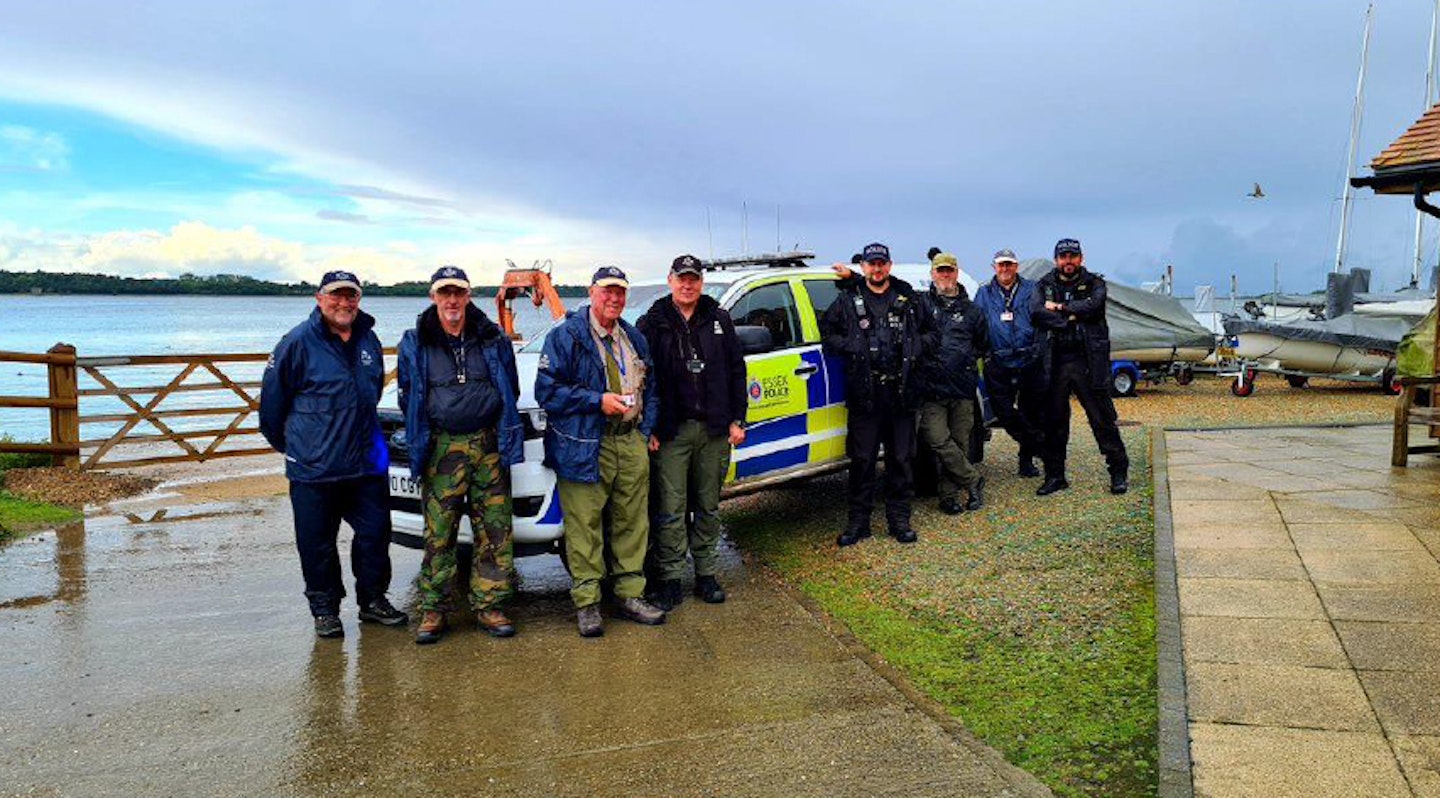
Fish refuges in the East Midlands protect vital fish populations
In the East Midlands, Environment Agency teams have completed projects to create and improve fish refuges. These structures provide protection for fish, offering habitat and shelter from extreme weather and good spawning opportunities.
Fish refuges help to maintain good fish populations and provide a number of benefits such as shelter for fish, including fry (young fish) and eels, during times of high flows and flood.
The shallow waters warm up quickly in spring, giving fry an improved survival rate so they have a better chance of reaching adulthood.
Dan Ellis, Fisheries Technical Officer at the Environment Agency said:
“Over a number of years, the East Midlands Fisheries team has been creating fish refuge areas to boost fish stocks in many of our rivers including the Trent, Soar, Derwent and Maun, which has helped to improve the resilience of our fish populations.
“We are also hoping to join with partners in creating new fish refuges in a number of locations across the East Midlands in the near future.”
The Environment Agency also continues to improve fish passage across the country to help fish populations access spawning and feeding grounds.
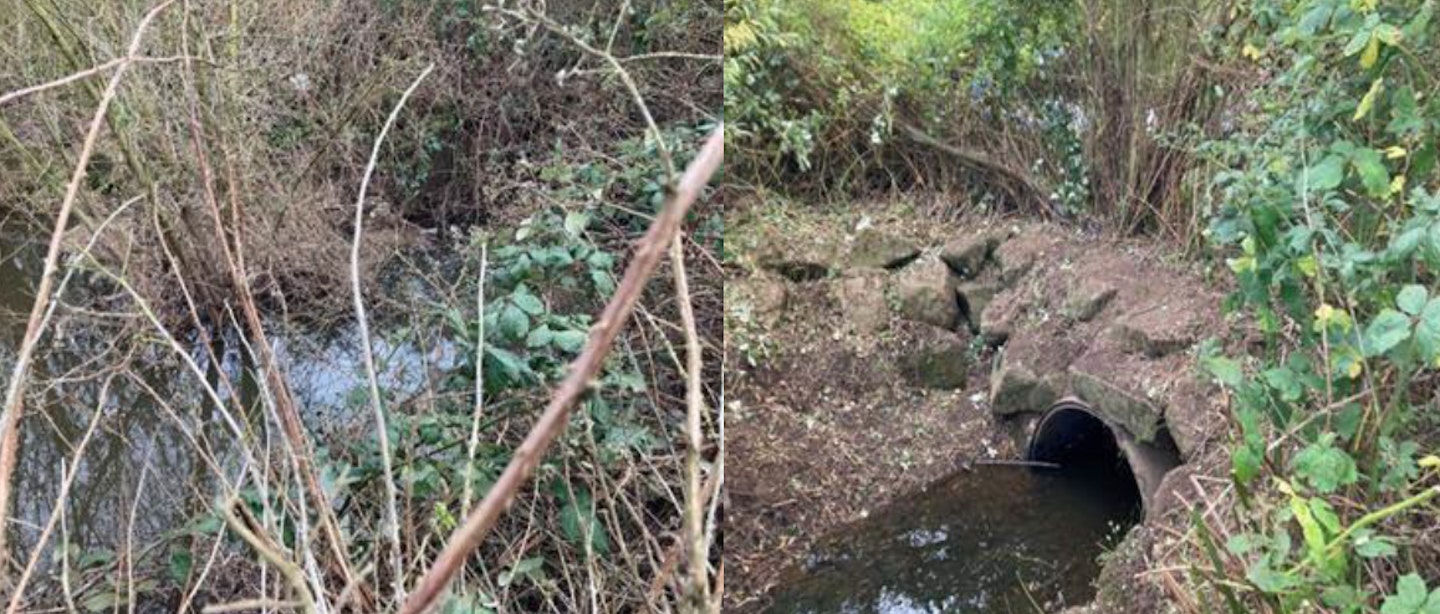
Fisheries Improvement Programme launch
The Environment Agency has started the process of collating project ideas to reinvest some of our rod licence income in 2022. The initial phase of the Fisheries Improvement Programme will see 500 thousand allocated for work to start in April.
172 projects were completed in 2020/21, working with around 200 partners. We improved 37km of rivers and 123 hectares of still-waters and made 10 barriers to fish movements passable. Around half the projects delivered improved angler access to fisheries especially at still-water venues. The 1.25 million of fishing licence income spent was matched by over 1 million of additional partner cash, grants and in-kind support.
Clubs and fisheries are encouraged to speak directly with the Environment Agency to discuss proposals, and teams can also submit their ideas for consideration via a portal on the Angling Trust website. More details can be found at Fisheries Improvement Programme - Angling Trust.
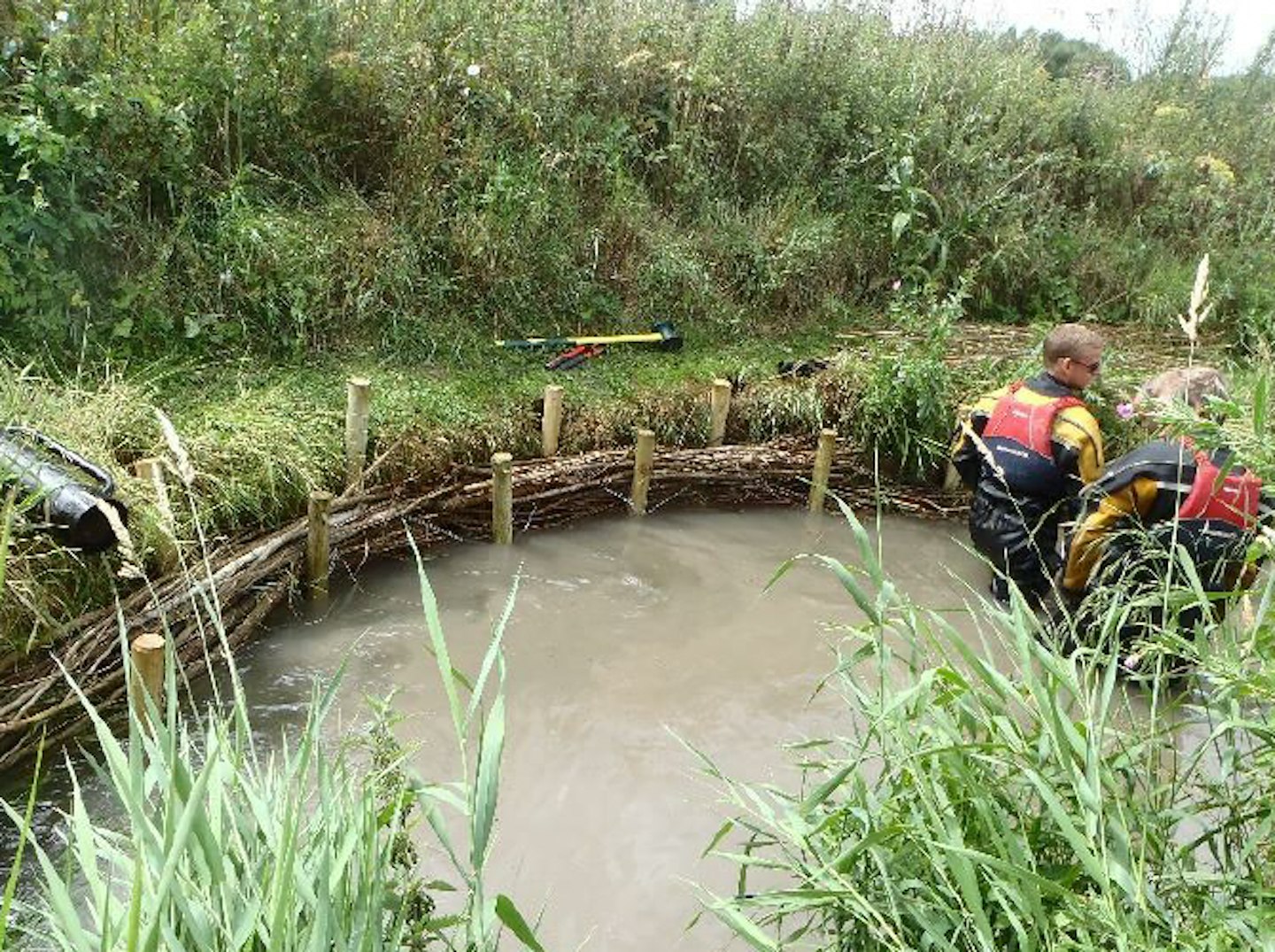
EA welcomes new Voluntary Bailiffs
The Environment Agency works closely with the Voluntary Bailiff Service to prevent illegal fishing and poaching.
This winter, we were pleased to welcome new volunteer bailiffs who trained and warranted to enforce fisheries law under the Salmon and Freshwater Fisheries Act.
New and existing voluntary bailiffs took part in conflict resolution training designed to teach the volunteers how to defuse conflict and work in close collaboration with anglers out on the riverbank to prevent illegal fishing and poaching.
This bolsters the ability of enforcement offers to check for rod licence offences and reduce evasion which protects fisheries licence income and ensures it can be used to improve fisheries habitats and angling facilities.
If you would like to join the VBS and help combat illegal fishing, please sign up on the Angling Trust’s website.
Don’t forget to stay in touch
You can stay up to date with the latest news and information from the Environment Agency on Twitter and Instagram at @envagency
